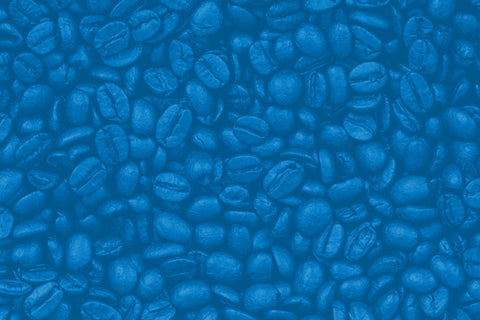
"Where’s the coffee? The really f*cking strong coffee?"
Have you ever said this?
Well if you have, you are not alone! Whether you are a hungover college student, a parent whose kids didn’t sleep the night before, or basically anyone in between, odds are you are a big fan of coffee.
You might love the flavor, but what’s most important about coffee is its effect: to make you more alert and to enhance wakefulness. This effect is from the main active ingredient in coffee: caffeine.
But you probably already knew all that. What you might not know is that caffeine can also improve coordination, memory, and can help prevent weight gain. So, is caffeine a nootropic?
Read on to find out why coffee (and the myriad products that contain caffeine) continues to have a huge impact on society/culture and why it’s the most widely used nootropic on the planet.
The history of caffeine use
Caffeine has a storied history that dates back to 3000 BC from a Chinese legend about the discovery of tea. Coffee drinking has been prevalent in Western culture since the 16th century. Since it was known that coffee contained some sort of stimulant, it has been regulated and even banned in certain countries over the years.
The identification of caffeine as a molecule occurred in 1819 when German chemist Friedlieb Ferdinand Runge successfully isolated pure caffeine. In 1895, German chemist Hermann Emil Fischer became the first person to synthesize caffeine. Two years later, he derived the structural formula for it as well. Fischer's work on caffeine helped him win the Nobel Prize in 1902.
How caffeine stimulates you, potentially enhancing mental performance
Caffeine is classified as a stimulant, which means it increases brain activity. It is quickly absorbed in humans and about 99% is absorbed 45 minutes after ingestion [1]. Here is how caffeine works to stimulate your brain:
- It binds to adenosine receptors in the central and peripheral nervous systems [1].
- By binding to adenosine receptors, caffeine blocks adenosine from binding to your A1 receptors. Adenosine promotes sleepiness [2].
- By blocking A2A receptors, which are co-localized with dopamine receptors in the striatum, caffeine indirectly increases dopamine release.
- Eventually, caffeine will unbind from all these receptors, which allows A1 and A2A to bind again. (This promotes sleepiness.)
Caffeine has a half-life of around 5 hours [2]. The half-life of a substance is the amount of time it takes to be reduced to half of the original amount. So if you ingest 100 mg of caffeine, in 5 hours you will have 50 mg of caffeine in your body remaining.
The benefits of caffeine
Caffeine has several beneficial effects, which include:
- Improved attention and alertness [4]
- Improved reaction speed and accuracy [6]
- Improved coordination and judgment [4]
- Improved strength and endurance [7]
- Improved memory [4]
These benefits are why caffeine is the most widely used nootropic in the world.
Coffee consumption: Finding the right caffeine dosage
Effective caffeine dosage varies depending on the individual. Caffeine alone improves cognitive performance at doses ranging from 2-9 mg/kg.
A caffeine intake of over 400 mg is not advised, however, as higher dosing levels like this may lead to negative effects, although they vary between individuals [3].
Listed below is the average amount of caffeine in different drinks:
- Cup of coffee: 10 mg per ounce
- Shot of espresso: 40 mg per ounce
- Green Tea: 3 mg per ounce
- Black Tea: 6 mg per ounce
- Red Bull/Monster energy drink: 9 mg per ounce
- Starbucks Grande brewed coffee: 320 mg total
- Starbucks Venti brewed coffee: 400 mg total
Caffeine drinkers can fall into two different categories in regards to how fast their body can metabolize (break down) caffeine, which is related to their genetics. Caffeine is metabolized by an enzyme in the liver that is encoded by the CYP1A2 gene [1], and about 50 percent of the population has a variant in the CYP1A2 gene that leads to slow processing.
The fast metabolizers break down caffeine much quicker than the slow metabolizers, and they have to ingest more caffeine for the effects to last. For the slow metabolizers, it's the opposite scenario entirely! Even a small amount of caffeine may keep them up all night.
Caffeine safety
Caffeine is very safe when taken by healthy adults. It is a stimulant, however, and may cause restlessness and insomnia in some.
If you are pregnant or breastfeeding, consider avoiding caffeine if possible as it may pass to the baby [5]. Babies can be cute and fun, but caring for them can be exhausting... so don’t give them any more excuses to stay up! For reference (if you are thinking about having children), see this book called Go the F*ck to Sleep. It can be hard enough to get them to bed without caffeine!
At unsafe doses, caffeine can cause headaches, dizziness, rapid/abnormal heartbeat, dehydration, and anxiety [5].
Blue Ca(ffeine)nnatine
Troscriptions' signature nootropic, Blue Cannatine, contains 50 mg of caffeine per full troche, which is the equivalent of ¼ the amount of caffeine in an average cup of coffee. In addition to caffeine, Blue Cannatine also contains low-dose and pharmaceutical-grade methylene blue, nicotine, and hemp extract to help launch your brain into “limitless mode." All the ingredients are precision dosed, physician formulated, and pharmaceutical grade.
Blue Cannatine will launch your flow, productivity, focus, memory, and verbal fluidity on demand!
FAQ:
Is caffeine a neuro enhancer?
Yes, caffeine effectively enhances brain function, acting as a natural cognitive enhancer. This makes your daily coffee much more than a simple wake-up beverage; it's a powerful stimulant that boosts mental alertness and focus.
Does caffeine improve cognition?
Yes, indeed! Caffeine consumption has been linked to enhanced cognitive function, including improved memory, alertness, and even mood. It's like a smart drug for your brain, making caffeine nootropic blends a must-have for anyone looking to boost mental performance.
Does caffeine actually help you focus?
For sure! The effects of caffeine on the central nervous system are profound, boosting dopamine levels and keeping you locked in. That focus you feel after you drink coffee? That’s caffeine working its magic, sharpening your mind and keeping distractions at bay.
Is coffee a nootropic?
Morning Coffee isn't just your daily ritual; it's the original nootropic. Packed with a natural dose of caffeine, it enhances reaction time and cognitive function, turning every sip into a step toward peak mental performance. When you drink coffee, you're engaging in an age-old cognitive enhancement tradition!
Is nootropic coffee safe?
Nootropic coffee, when consumed responsibly, is safe and can be an effective way to improve cognitive function, alertness, focus, and even athletic performance. However, it's essential to monitor how your body responds to ensure you enjoy the benefits of a caffeine nootropic without any side effects or withdrawal symptoms.
References
- Willson C. (2018). The clinical toxicology of caffeine: A review and case study. Toxicology reports, 5, 1140–1152. https://doi.org/10.1016/j.toxrep.2018.11.002
- Institute of Medicine (US) Committee on Military Nutrition Research. Caffeine for the Sustainment of Mental Task Performance: Formulations for Military Operations. Washington (DC): National Academies Press (US); 2001. 2, Pharmacology of Caffeine. Available from: https://www.ncbi.nlm.nih.gov/books/NBK223808/
- https://www.fda.gov/consumers/consumer-updates/spilling-beans-how-much-caffeine-too-much
- Cappelletti, S., Piacentino, D., Sani, G., & Aromatario, M. (2015). Caffeine: cognitive and physical performance enhancer or psychoactive drug?. Current neuropharmacology, 13(1), 71–88. https://doi.org/10.2174/1570159X13666141210215655
- Temple, J. L., Bernard, C., Lipshultz, S. E., Czachor, J. D., Westphal, J. A., & Mestre, M. A. (2017). The Safety of Ingested Caffeine: A Comprehensive Review. Frontiers in psychiatry, 8, 80. https://doi.org/10.3389/fpsyt.2017.00080
- Kamimori, G. H., McLellan, T. M., Tate, C. M., Voss, D. M., Niro, P., & Lieberman, H. R. (2015). Caffeine improves reaction time, vigilance and logical reasoning during extended periods with restricted opportunities for sleep. Psychopharmacology, 232(12), 2031–2042. https://doi.org/10.1007/s00213-014-3834-5
- Grgic, J., Trexler, E. T., Lazinica, B., & Pedisic, Z. (2018). Effects of caffeine intake on muscle strength and power: a systematic review and meta-analysis. Journal of the International Society of Sports Nutrition, 15, 11. https://doi.org/10.1186/s12970-018-0216-0





Comments (1)
I’m very intrigued by you good folks.. absolutely…Excited to experience triscriptions